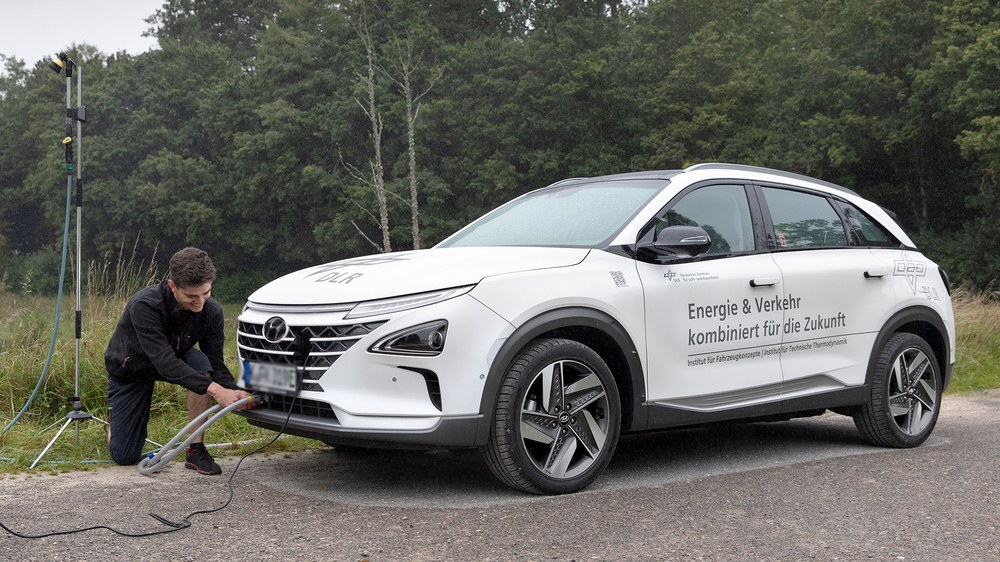The project focuses on interdisciplinary analyses of technical, ecological, economic and social effects.
For the comparative analysis of the use of synthetic fuels in road transport, the Institute of Vehicle Concepts is creating a detailed modelling of the development of new car and truck markets using the Vector 21 simulation model. This allows the market penetration of different drive concepts to be investigated and the future demand for synthetic and conventional fuels, as well as electricity for electric vehicles, to be estimated.
The modelling of new vehicle markets is carried out for various 'target' scenarios, which differ primarily with regard to the future significance of electromobility and synthetic fuels. The simulation of these scenarios aims to quantify the effects of factors on the vehicle purchase decision such as fuel prices, CO2 emissions and costs or other monetarily effective technical and regulatory boundary conditions. The aim is to analyse the potential market success of synthetic fuels, electric vehicles and other alternative drive systems and to illustrate their potential future significance, assuming that developments are in line with targets.
As part of the assessment of synthetic fuels, the Institute of Vehicle Concepts - with a focus on the use of synthetic fuels in road transport - carries out life cycle-based analyses to create the basis for an ecological assessment, as well as industrial and macroeconomic analyses that are incorporated into the economic assessments.
Project goals
The BEniVer research project has set itself the goal of providing methodical, transparent and objective support for the forward-looking technical research projects of the "Energy transition in transport" research initiative. Data and results from the research projects are brought together in an overall assessment and serve as the basis for technical, economic and ecological evaluations as well as analyses of integration into the energy and transport system. Furthermore, analyses of acceptance and market introduction mechanisms will also address the social dimensions and effects of the introduction of electricity-based fuels.
The result is a guideline with options for action for the research, development, production and market launch of alternative fuels. This guideline is intended to provide a sound information basis for social decisions on the further development of sustainable mobility.
Client
Bundesministeriums für Wirtschaft und Energie BMWi
Project partners
• DLR Institut für Fahrzeugkonzepte, Stuttgart
• DLR Institut für Flughafenwesen, Köln
• DLR Institut für Physik der Atmosphäre, Weßling
• DLR Institut für Technische Thermodynamik, Stuttgart
• DLR Institut für Verkehrsforschung, Berlin
• DLR Institut Verbrennungstechnik, Stuttgart
• Institut für Zukunftsenergie- und Stoffstromsysteme - IZES gGmbH
• Forschungsstelle für Energiewirtschaft e. V. - FfE
• Helmholtz-Zentrum für Umweltforschung - UFZ
• Deutsches Biomasseforschungszentrum - DBFZ gGmbH
• Gesellschaft für Wirtschaftliche Strukturforschung - GWS
Project duration
2018-2022

